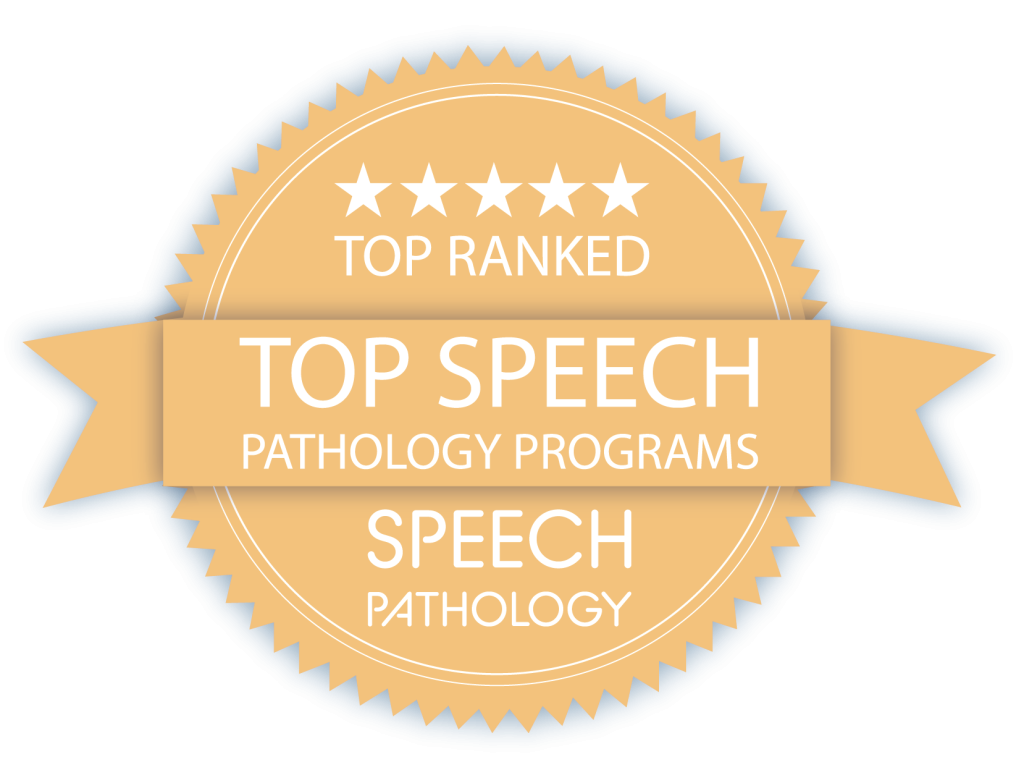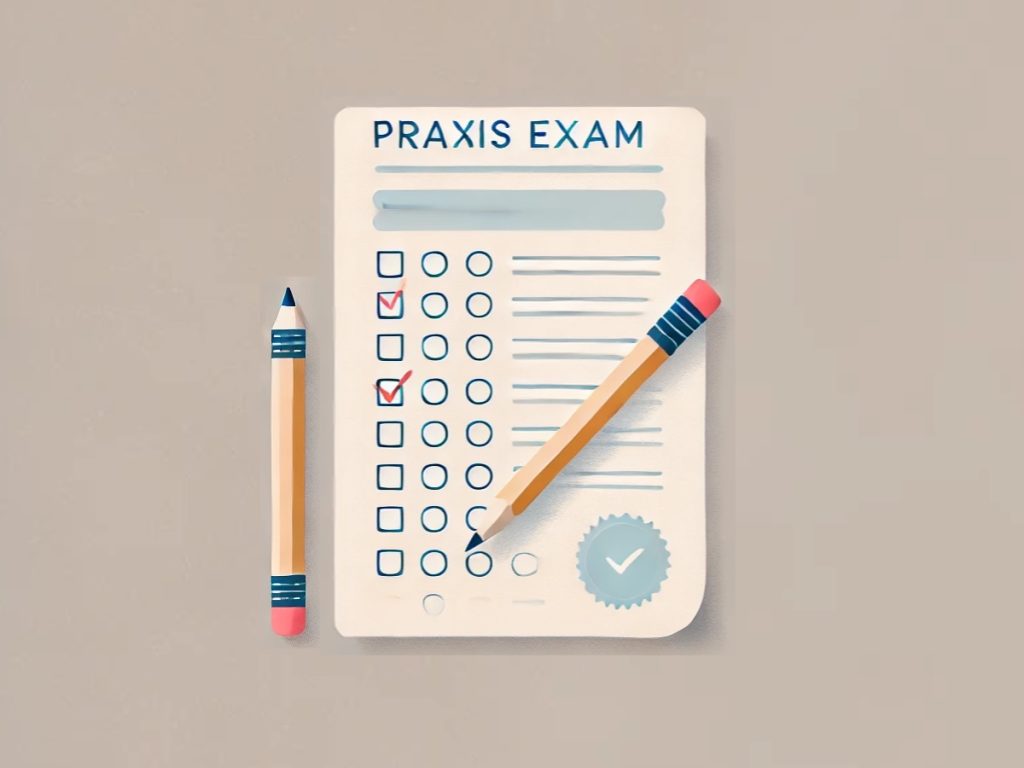Best PhD and SLPD Doctorate Degrees in Speech Pathology
Doctorate degrees in Speech-Language Pathology are the highest level of education that one can achieve in this field, which enables one to assume leadership, conduct research or engage in specialized clinical practice. For speech pathologists, these programs provide the necessary rigor and depth of academic training and practical experience to make a real difference to the profession. Here, in this guide, you will discover why getting a doctorate can boost your career, where are the best accredited programs, and how to prepare for application and what to expect from the curriculum. We will also compare the main features of the research-focused PhDs and clinically focused SLPDs and SLP-Ds to help you choose the right direction for your professional goals in speech pathology.

2026 Best SLP Doctorate (PhD & SLPD) Degree Programs
University of Florida
Gainesville, FL - Public 4-Year - ufl.edu
Doctorate - Master of Arts in Communication Sciences and Disorders
Campus Based - Visit Website
The University of Florida's Master of Arts in Communication Sciences and Disorders is a rigorous 5-semester, full-time campus program that prepares students for speech-language pathology careers. It boasts exceptional outcomes: 98.9% completion rate, 100% first-attempt Praxis pass rate, and 97.7% employment rate. Students benefit from small class sizes (25-30), extensive clinical practicum opportunities, and optional research under expert faculty mentorship. This program requires the Praxis entrance exam for certification. No distance learning is available.
- 5-semester full-time campus program
- 98.9% program completion rate
- 100% first Praxis exam pass rate
- 97.7% employment rate
- Small class sizes (25-30 students)
- Clinical practicum sites available
- Research opportunities optional
- No distance learning option
Doctorate - Ph.D. Program in Rehabilitation Science: Concentration in Communication and Swallowing Sciences and Disorders (Communication and Swallowing Sciences and Disorders)
Campus Based - Visit Website
The Ph.D. in Rehabilitation Science with a Concentration in Communication and Swallowing Sciences and Disorders at the University of Florida is an interdisciplinary, research-focused doctoral program. It emphasizes cutting-edge scientific exploration of speech, language, and swallowing disorders, providing hands-on research experiences and collaboration with leading faculty. Students develop advanced research skills and methodologies, preparing for academic or clinical research careers. This program requires an entrance exam, such as the GRE.
- Interdisciplinary doctoral research program
- Specialized communication sciences concentration
- Research-intensive curriculum
- Hands-on clinical experiences
- Prepares for academic research careers
Doctorate - Doctor of Philosophy in Rehabilitation Science: Concentration in Communication and Swallowing Sciences and Disorders (Communication and Swallowing Sciences and Disorders)
Campus Based - Visit Website
University of Florida's Doctor of Philosophy in Rehabilitation Science: Concentration in Communication and Swallowing Sciences and Disorders offers an interdisciplinary path for researchers. It focuses on developing advanced skills in teaching, research, and leadership within rehabilitation science, with specialized training in communication and swallowing disorders. The curriculum includes research methods, statistics, and diverse research opportunities, preparing graduates for impactful roles in academia and healthcare innovation. An entrance exam like the GRE is required.
- Interdisciplinary doctoral program
- Communication sciences concentration
- Research methods training
- Leadership skill development
- Diverse research opportunities
Northwestern University
Evanston, IL - Private 4-year - northwestern.edu
Doctorate - Doctor of Speech-Language Pathology
Campus Based - Visit Website
Northwestern University's Doctor of Speech-Language Pathology (SLPD) program offers a hybrid, part-time format ideal for working clinicians seeking advancement without relocation. The curriculum emphasizes leadership, healthcare policy, and evidence-based practice, with opportunities for customizable clinical specialization. This program includes innovative coursework and mentored development within a vibrant academic community, preparing graduates for significant roles in healthcare and education. While specific entrance exam requirements are not explicitly mentioned in the provided description, applicants should verify current admission criteria, including any potential exam needs, through the university's admissions resources.
- Hybrid part-time format
- No relocation required
- Focus on leadership and policy
- Customizable clinical specialization
- Innovative coursework
- Mentored development
- Vibrant academic community
- Designed for working clinicians
- Evidence-based practice focus
- Prepares for healthcare leadership
Harvard University
Cambridge, MA - Private 4-year - harvard.edu
Doctorate - Speech and Hearing Bioscience and Technology (Speech-Language Pathology)
Campus Based - Visit Website
Harvard University's Speech and Hearing Bioscience and Technology program with a Speech-Language Pathology concentration integrates multidisciplinary coursework with extensive hands-on research. Students participate in lab rotations to identify research interests, culminating in a dissertation over approximately 5.5 years. This campus-based program in Cambridge, MA, emphasizes both academic rigor and clinical training, preparing graduates for ASHA certification. An entrance exam is required for admission to this doctorate-level program.
- Campus-based program
- Focus on Speech-Language Pathology
- Multidisciplinary education approach
- Lab rotations for research
- Average 5.5 years to degree
- Prepares for ASHA certification
- Combines coursework and research
- Located in Cambridge, MA
- Dissertation required
- Academic and clinical training
Vanderbilt University
Nashville, TN - Private 4-year - vanderbilt.edu
Doctorate - Master of Science in Speech-Language Pathology
Campus Based - Visit Website
Vanderbilt University's Master of Science in Speech-Language Pathology is a 20-24 month campus program in Nashville, TN, accredited by ASHA. It provides comprehensive academic and clinical training exceeding ASHA standards, with hands-on experience in diverse settings like hospitals and specialized centers. The curriculum includes optional specialty tracks and research opportunities. Applicants must submit strong GRE scores and have a background in related fields. The program prepares graduates for ASHA certification and various career paths in speech-language pathology, and it is military-friendly.
- Campus-based program
- 20-24 months duration
- ASHA accredited
- Diverse clinical settings
- Optional specialty tracks
- Research opportunities available
- Strong GRE scores required
- Background in related fields needed
- Prepares for ASHA certification
- Located in Nashville, TN
Doctorate - Ph.D. in Hearing and Speech Sciences (Speech-Language Pathology)
Campus Based - Visit Website
Vanderbilt University's Ph.D. in Hearing and Speech Sciences with a concentration in Speech-Language Pathology focuses on preparing students for research and teaching careers. This campus-based program requires 72 graduate credit hours, with up to 24 transferable from a master's degree. It includes two research projects, a teaching practicum, tailored coursework, and collaborations across departments before dissertation work. Students often present at conferences and publish in journals, leading to faculty positions worldwide. Financial support is available, and the program is military-friendly; an entrance exam is required, typically the GRE.
- 72 graduate credit hours required
- Up to 24 transferable credit hours
- Two research projects before dissertation
- Teaching practicum included
- Tailored coursework options
- Collaboration with multiple departments
- Financial support available
- Prepares for faculty positions
- Research presented at conferences
- Publications in leading journals
Case Western Reserve University
Cleveland, OH - Private 4-year - case.edu
Doctorate - Doctor of Philosophy Program (Communication Sciences)
Campus Based - Visit Website
Case Western Reserve University's Communication Sciences PhD program delivers advanced interdisciplinary research training, concentrating on speech perception, language disorders, and neurogenic communication. Emphasizing personalized mentorship in small cohorts, it prepares graduates for leadership in academia, research hospitals, and clinical practice. This campus-based program requires an entrance exam for admission. Military-friendly, it offers a rigorous, mentor-driven model bridging scientific inquiry with real-world application.
- Interdisciplinary doctoral training
- Small, highly selective cohort
- Research across communication disorders
- Mentor-based academic model
- Career paths in research, education
Florida State University
Tallahassee, FL - Public 4-Year - fsu.edu
Doctorate - Ph.D. in Communication Science & Disorders
Campus Based - Visit Website
Florida State University's Ph.D. in Communication Science & Disorders prepares students for leadership in research, teaching, and clinical practice through a campus-based program in Tallahassee. The curriculum emphasizes applied clinical research, with opportunities to specialize in areas like developmental disabilities and neurologically-based communication disorders across the lifespan. Admission requires a master's degree, a minimum 3.0 GPA, and GRE scores. Students benefit from close faculty collaboration and an individualized course of study designed for academic and professional advancement.
- Campus-based program
- Focus on applied clinical research
- Specializations in developmental disabilities
- Requires master's degree for admission
- 3.0 GPA minimum requirement
- GRE scores required
- Individualized course of study
- Prepares for academic and leadership roles
- Close faculty collaboration
- Located in Tallahassee, FL
Doctorate - Ph.D. in Communication Science & Disorders (Developmental Disabilities)
Campus Based - Visit Website
Focusing on developmental disabilities, this Ph.D. program at Florida State University trains researchers and scholars to address complex communication challenges in populations such as those with autism spectrum disorders. The curriculum integrates applied clinical research with specialized training in school-age language, literacy, and early intervention strategies. Admission necessitates a master's degree, a 3.0 GPA, and GRE scores are recommended. The program emphasizes leadership-oriented research and offers a priority funding deadline of January 1st for prospective students.
- Specialized Developmental Disabilities Focus
- Leadership-Oriented Research Training
- Applied Clinical Research Emphasis
- Individualized Doctoral Curriculum
- Minimum 3.0 GPA Requirement
- GRE Scores Recommended
- January 1st Priority Funding Deadline
Doctorate - Ph.D. in Communication Science & Disorders (Neurologically-based Communication and Cognitive Disorders)
Campus Based - Visit Website
Specializing in neurologically-based communication and cognitive disorders, this Ph.D. at Florida State University equips students for impactful careers in academia and clinical research. The program centers on applied clinical research, allowing students to work with expert faculty on individualized projects. Admission requires a master's degree, a 3.0 GPA, and GRE scores. Students gain hands-on teaching and research experience, preparing them for leadership roles in addressing disorders like aphasia and cognitive-communication impairments.
- Specializes in Neurologically-based Disorders.
- Prepares for academia and research.
- Requires master's degree for admission.
- 3.0 GPA minimum.
- GRE scores required.
- Focus on applied clinical research.
- Individualized program based on interests.
- Teaching and research experience included.
- Campus-based program.
- Leadership roles preparation.
University of Delaware
Newark, DE - Public 4-Year - udel.edu
Doctorate - Ph.D. in Communication Sciences and Disorders
Campus Based - Visit Website
The University of Delaware's Ph.D. in Communication Sciences and Disorders is Delaware's first such doctoral program, training scholars in speech-language pathology research. Students receive intensive training in language, cognitive, speech, and swallowing processes under nationally ranked faculty. The program offers a three-year funding guarantee with stipends and tuition remission, plus opportunities for NIH and NSF-funded research. Graduates are prepared for competitive fellowships and faculty roles. An optional GRE is recommended, with holistic admissions considering research ethics and grant writing training.
- First CSCD PhD in Delaware
- Minimum 56 credit hours required
- National funding opportunities
- 3-year initial funding guarantee
- Optional GRE recommended
- Holistic admission approach
- Research ethics training included
- Grant writing course offered
- Competitive research environment
Doctorate - M.A. in Speech-Language Pathology
Campus Based - Visit Website
University of Delaware's Master of Arts in Speech-Language Pathology prepares students for clinical practice through comprehensive, hands-on training in diverse settings. This campus-based program emphasizes evidence-based practice and innovative research, equipping graduates for leadership roles. Admission requires a bachelor's degree and prerequisite coursework, with financial aid and scholarships available. The program focuses on developing practical skills for dynamic clinical environments, though no specific entrance exam is mentioned in the provided highlights.
- Campus-based program
- Focus on clinical training
- Evidence-based practice emphasis
- Hands-on experience
- Innovative research opportunities
- Prepares for clinical practice
- Leadership roles preparation
- Diverse clinical settings
- Bachelor's degree required
- Prerequisite coursework needed
Columbia University in the City of New York
New York, NY - Private 4-year - columbia.edu
Doctorate - Ph.D. in Communication Sciences and Disorders
Campus Based - Visit Website
Columbia University's Ph.D. in Communication Sciences and Disorders is a research-intensive program emphasizing translational research and bilingualism. It requires a master's degree for admission and an entrance exam, typically the GRE. The 75-credit, full-time curriculum follows an apprenticeship model, integrating students into faculty research projects on diverse topics like aphasia treatment and second language speech perception. Completion involves a dissertation, preparing graduates for academic and research careers in speech-language pathology.
- Research-based PhD program
- Full-time campus study
- 75 credit points required
- Master's degree for admission
- Dissertation completion needed
- Focus on translational research
- Bilingualism studies included
- Apprenticeship model emphasized
- Faculty research participation
- Diverse research topics available
Ohio State University
Columbus, OH - Public 4-Year - osu.edu
Doctorate - Doctor of Philosophy (Speech-Language Science)
Campus Based - Visit Website
Ohio State University's Doctor of Philosophy in Speech-Language Science prepares students for careers as laboratory/clinical researchers and university professors. This research-intensive program offers flexible coursework in psychology, linguistics, and statistics with minimal specific requirements. Students gain hands-on research experience across diverse settings while working closely with faculty on personalized academic paths. The program emphasizes tailored research opportunities and prepares graduates for impactful roles in academia and research institutions. An entrance exam is required for this doctoral program.
- Concentration in Speech-Language Science.
- Tailored academic coursework.
- Research experience in diverse settings.
- Minimal specific requirements.
- Preparation for research and academia careers.
- Faculty support for personalized paths.
- Coursework in psychology, linguistics, statistics.
- Opportunities in laboratory and clinical settings.
- Designed for future researchers and professors.
- Flexible academic program.
Doctorate - Master of Arts
Campus Based - Visit Website
Ohio State University's Master of Arts in Speech-Language Pathology provides comprehensive clinical training beginning in the first semester. This two-year full-time program covers all nine practice areas of speech-language pathology and meets ASHA certification and Ohio licensure requirements. Students learn from world-class faculty in Columbus, benefiting from extensive clinical placement opportunities in a major metropolitan area. The program boasts high employment rates and is ranked #21 by U.S. News & World Report. An entrance exam is required for this master's program.
- Two-year full-time program
- Meets ASHA certification requirements
- Ohio licensure eligible
- Clinical training from first semester
- Covers nine practice areas
- World-class faculty
- High employment rates
- Financial aid available
- Major metropolitan clinical placements
University of Georgia
Athens, GA - Public 4-Year - uga.edu
Doctorate - PhD in Communication Sciences and Disorders
Campus Based - Visit Website
The University of Georgia's PhD in Communication Sciences and Disorders emphasizes individualized study with mentored research, teaching, and clinical supervision opportunities. Students engage in evidence-based, client-centered education under faculty experts, completing core courses, advanced statistics, computer science, and dissertation research over four years full-time. Admission requires a master's degree, minimum 3.0 GPA, and English proficiency for international students; an entrance exam is not mentioned as required. Financial aid and assistantships support eligible candidates, preparing graduates for leadership in academia, research, and clinical settings.
- Individualized course of study
- Multiple research experiences
- Opportunities for teaching or supervision
- Four years full-time study
- 30 hours core courses
- 12 hours advanced statistics
- 6 hours computer science
- 10 hours dissertation research
- Master's degree required
- 3.0 minimum GPA
Why Get a Doctorate in SLP?
Doctorate degrees in Speech Pathology are designed for people who want to make a difference, and emerge as leaders in the field. They are ideal for very advanced clinicians, researchers who want to contribute new knowledge, educational instructors, and policy makers who want to help establish best practices. These programs are great for people who have already gained a lot of clinical experience and are looking to take their skills past the level of a typical practitioner. If you are passionate about what you do, passionate about achieving the best and passionate about changing the world for the better through communication sciences, then a doctorate is a chance to learn more about the latest research and to take senior academic, clinical or healthcare management positions. Therefore, it is for those who are willing to go the extra mile and contribute to the advancement of the speech-language pathologist profession.
Who Is It For?
Clinicians & Therapists
Researchers
Educators
Leaders & Administration
Policy Influencers
Doctor of Philosophy (Ph.D.) in Speech-Language Pathology offers many advantages to those who want to enhance their professionalism. Obtaining a doctorate not only enhances one’s clinical and research competency but also leads to management positions in education, healthcare and policy making. This advanced degree enables institutions to consider you a leading expert, allowing you to apply for positions in new research, specialisation in clinical practice, and guidance. The training is quite rigorous and helps in the development of critical thinking and problem solving skills in order to provide better patient care and identify trends in practice. In conclusion, a Ph.D. in SLP increases your employability and career options and is a great way for someone who wants to be a leader in the field.
Key Benefits
- Leadership Opportunities
- Advanced Specialization
- Professional Credibility
- Broader Career Options
- Influence on Practice & Policy
PhD vs SLPD vs SLP-D
This table provides a summary of the three doctorate options in Speech-Language Pathology, and the table lists key elements of the comparison, such as the focus, duration, curriculum, funding, and career outcomes. No matter your professional goals, whether you are most interested in groundbreaking research, clinical leadership or simply excellent applied clinical practice, this pathway will help you identify which of the routes is right for you to achieve your vision for your career.
| PhD In SLP | |
|---|---|
| Degree Title | PhD in Speech-Language Pathology or Communication Sciences and Disorders |
| Focus/Orientation | Research and academic scholarship with an emphasis on theory and original research |
| Program Duration | Typically 3-6 years post-master’s |
| Admission Requirements | Strong academic record, research experience, and often GRE scores; requires a master’s in SLP or a related field |
| Curriculum Focus | In-depth research methodologies, theoretical frameworks, and a dissertation that prepares scholars for academia |
| Clinical vs. Research | Primarily research-focused with opportunities for teaching and policy work; limited direct clinical practice |
| Funding Opportunities | Often offers assistantships, grants, and fellowships |
| Career Outcomes | Academia, research institutions, high-level policy roles, and consultancy |
| Future Pathways | Ideal for tenure-track academic positions and leading research initiatives |
| SLPD (Doctor of Speech-Language Pathology) | |
|---|---|
| Degree Title | Doctor of Speech-Language Pathology (SLPD) |
| Focus/Orientation | Advanced clinical practice and leadership in clinical settings |
| Program Duration | Approximately 2-3 years post-master’s |
| Admission Requirements | Emphasis on clinical experience and academic performance; GRE may be optional; letters of recommendation and personal statements are key |
| Curriculum Focus | Integrated advanced clinical coursework, leadership training, and a capstone project in lieu of a traditional dissertation |
| Clinical vs. Research | Balanced mix of clinical training and leadership development, with moderate research components |
| Funding Opportunities | May offer limited funding; many students self-fund or receive employer support |
| Career Outcomes | Clinical leadership roles, advanced practice positions, program administration, and clinical education |
| Future Pathways | Opens doors to advanced clinical practice and leadership in healthcare and education |
| SLP-D (Doctor of Clinical Speech Pathology) | |
|---|---|
| Degree Title | Doctor of Clinical Speech Pathology (SLP-D) |
| Focus/Orientation | Enhanced clinical expertise with a strong focus on evidence-based practice and applied research |
| Program Duration | Approximately 2-3 years post-master’s |
| Admission Requirements | Focus on clinical proficiency with a master’s degree in SLP; holistic review with GRE sometimes optional |
| Curriculum Focus | Combines advanced clinical coursework, applied research projects, and extensive practicum experiences to hone clinical skills |
| Clinical vs. Research | Predominantly clinical, with an emphasis on applied research to refine hands-on, evidence-based practice |
| Funding Opportunities | Similar to SLPD, with occasional assistantships; funding is generally more limited than in PhD programs |
| Career Outcomes | Advanced clinical practice, supervisory roles, and positions in clinical education, consultation, and specialized healthcare settings |
| Future Pathways | Provides robust clinical credentials, paving the way for specialized practice and senior clinical or supervisory roles |
What Are the Admissions Requirements for a Doctorate in Speech-Language Pathology?
The admission to doctorate degrees in Speech Pathology depends on whether you are applying for a PhD, SLPD or SLP-D. Although all of them are academic oriented and clinical experience is also compulsory, PhD programs give priority to research aptitude while SLPD and SLP-D emphasize clinical competence and management. GRE scores are necessary for PhD programs, but clinical doctorates may use a different and more comprehensive review.
| PhD In SLP | |
|---|---|
| Bachelor's / Master's Degree | Bachelor’s required; master’s in SLP or related field preferred |
| GRE Scores | Typically required; strong emphasis on test scores |
| Letters of Recommendation | 2-3 academic recommendations highlighting research potential |
| Personal Statement/Essay | Must outline research interests and academic goals |
| Experience | Research experience is highly valued; clinical experience is a plus |
| SLPD | |
|---|---|
| Bachelor's / Master's Degree | Master’s in SLP (or related field) required |
| GRE Scores | Often optional or considered less heavily; holistic review |
| Letters of Recommendation | 2-3 recommendations emphasizing clinical and academic strengths |
| Personal Statement/Essay | Emphasis on clinical experience and leadership potential |
| Experience | Balanced emphasis on clinical experience and leadership |
| SLP-D | |
|---|---|
| Bachelor's / Master's Degree | Master’s in SLP required |
| GRE Scores | Often optional; focus on overall profile |
| Letters of Recommendation | 2-3 recommendations focused on clinical competence |
| Personal Statement/Essay | Focus on clinical expertise and career objectives |
| Experience | Strong clinical background and applied research experience |
What Speech-Language Pathology Jobs Can I Get with a Doctorate Degree?
Doctorate degrees in Speech Pathology are specialized to different professional passions and thus lead to different career paths. For example, those who obtain a PhD in SLP are likely to be interested in research and academic. They may act as university professors, conduct revolutionary studies, or create new policies based on communication sciences. This path is for those who enjoy the application of theory and the expansion of knowledge within the field.
Conversely, clinical doctorates, i.e. SLPD or SLP-D, are designed for enhanced clinical practice and leadership. These programs’ graduates typically progress to clinical supervision, program administration, or leadership in the healthcare setting. The SLPD usually stresses leadership and may include a capstone that entails implementing a clinical venture, whereas the SLP-D focuses on research and clinical achievement.
Ultimately, a doctorate in SLP, of any type, provides solid career paths. The difference between a PhD, SLPD, and SLP-D depends on whether you want to stretch academic limits or improve clinical practice and management in the community.
Related Articles

Speech Pathologist vs Speech Therapist: What’s the Difference?
If you have ever been researching speech-language pathology careers and come across the words ‘speech pathologist’ and ‘speech therapist’, you might wonder if they are

What is the Speech-Language Pathology Interstate Compact?
If you are interested in pursuing a career in SLP and have been researching licensing requirements or are simply interested in learning more about SLP

Supporting Students with Dyslexia: A Guide to Resources for High School and College Success
Dyslexia, a common learning difference affecting reading, writing, and language processing, can present unique challenges for students transitioning from high school to college. Fortunately, a

What is the Praxis Exam for Speech Language Pathology?
If you are pursuing the position of a speech-language pathologist, then you may have heard of the Praxis exam from your professors, classmates, or even
